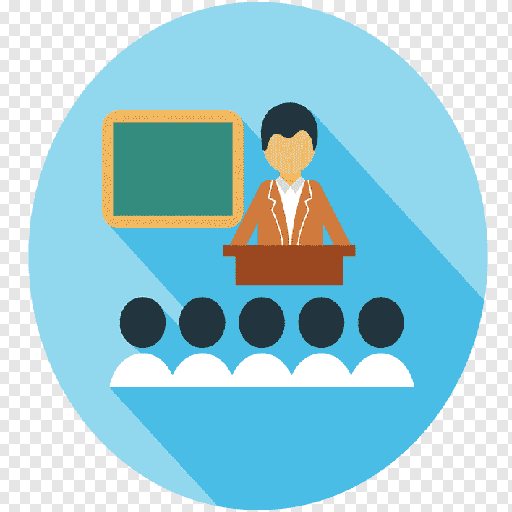Teacher education: meeting the global demand and challenges in tertiary institutions in Nigeria
Abstract
Education is regarded as a tool of national growth in most societies and no nation can survive today in the face of the influence of globalization without training and providing qualitative education to her citizens. The teacher is at the center of the teaching and socialization process situate in the school and towards the realization of a nation’s educational policy. This role is also complimentary to the functions performed by the agencies of socialization such as the family, mass media, religious organizations, peer group, and non-government organizations. Consequently, the paper examined the nature, importance, roles and challenges of teacher education in meeting the global demand in Nigerian. The paper identified institutional corruption at all levels of teacher education, quality of programme and products, weak admission policy of students, poor facilities provision and management as part of its challenges in Nigeria. Five recommendations were made which includes the provision of adequate facilities, e-learning environments and improved security in collaboration with the host communities.
References
Achuonye, K. A. (2010). Teacher education. In E. E. Adiele, M. B. L. Leigha & L. N. Abraham (ed). Introduction to teaching profession. Port Harcourt: Harey Publications. 49.
Agabi, C. O. (2014). Teaching & resource management in education. Port Harcourt: Rodi.
Aninwene, E. O. (2011). Repositioning of NCE music curriculum to meet the MDGs challenges. In P. Egbule, J. E. Tabotndip& D. A. Aboho. Refocusing education in Nigeria in the 21st Century. Onitsha. West & Solomon.
Anugwo, M. N. (2010). Evaluation issues in the resuscitation of the Nigerian education sector. In E. C. Koputa, B. U. Maduewesi& R. O. Igbo (ed). Issues and challenges in Nigeria in the 21st Century. Onitsha: West & Solomon 307.
Guadalupe, C. (2019). Teachers as primary agents of educational systems. Retrieved 22/6/19. https:/www.focal.ca.Hall, B. T. (2014)
Harry, A. P., Velz, E. B. &Yau C. (2014). The six A’s of quality education. Retrieved 22/6/19. worldbank.org. http:/blogs.worldbank.org.
Maduewesi, B. U. &Ezeobi, K. O. (2010). Teacher education in Nigeria in the 21st Century: Challenges and prospects. In E. C.Koputafe, B. U. Maduewesi& R. O. Igbo (ed). Issues and challenges in Nigeria in the 21st Century. Onitsha. West & Solomon. 1-17.
NCCE (2019). List of colleges of education in Nigeria.https://en.wikipedia.org/./ Retrieved 1-7-9.
Nwankwoala, H. N. L. (2018). School mapping, plant and classroom management: Administrative perspective. Port Harcourt: Harey Publications.
Odigi, V. O. (2006). Teaching practice and pre-employment experience for new teachers. In J. M. Ebong& J. Ezekiel-Hart (ed). Contemporary issues in education. Port Harcourt: Eagle Lithograph.
Okeke, B. S. (2014). Teaching in Nigeria: The bureaucracy and professionalism. Port Harcourt: Mercury.
Rice, J. K. (2003). Teacher quality: Understanding the effectiveness of teachers attribute
Tepperman, L. Curtis, J. and Albanese, P. (2008) (ed). Sociology: A Canadian perspective. New York Oxford University.
Uwakwe, B. C. (2006). Problems and prospects of music education in Nigeria. In Ebong J. M., Ezekiel-Hart, J. Contemporary issues in education. Port Harcourt.
Wosu, J. I. (2017). General concept of teacher education. In Wosu, J. I, D. C. Ukulor & A. O. Uriah (ed). The making of a professional teacher: Achieving effective teaching and learning in Nigeria. Port Harcourt: Harey Publications.

In submitting the manuscript to the International Journal on Integrated Education (IJIE), the authors certify that:
- They are authorized by their co-authors to enter into these arrangements.
- The work described has not been formally published before, except in the form of an abstract or as part of a published lecture, review, thesis, or overlay journal.
- That it is not under consideration for publication elsewhere,
- The publication has been approved by the author(s) and by responsible authorities – tacitly or explicitly – of the institutes where the work has been carried out.
- They secure the right to reproduce any material that has already been published or copyrighted elsewhere.
- They agree to the following license and copyright agreement.
License and Copyright Agreement
Authors who publish with International Journal on Integrated Education (IJIE) agree to the following terms:
Authors retain copyright and grant the International Journal on Integrated Education (IJIE) right of first publication with the work simultaneously licensed under Creative Commons Attribution License (CC BY 4.0) that allows others to share the work with an acknowledgment of the work's authorship and initial publication in this journal.





1.png)
